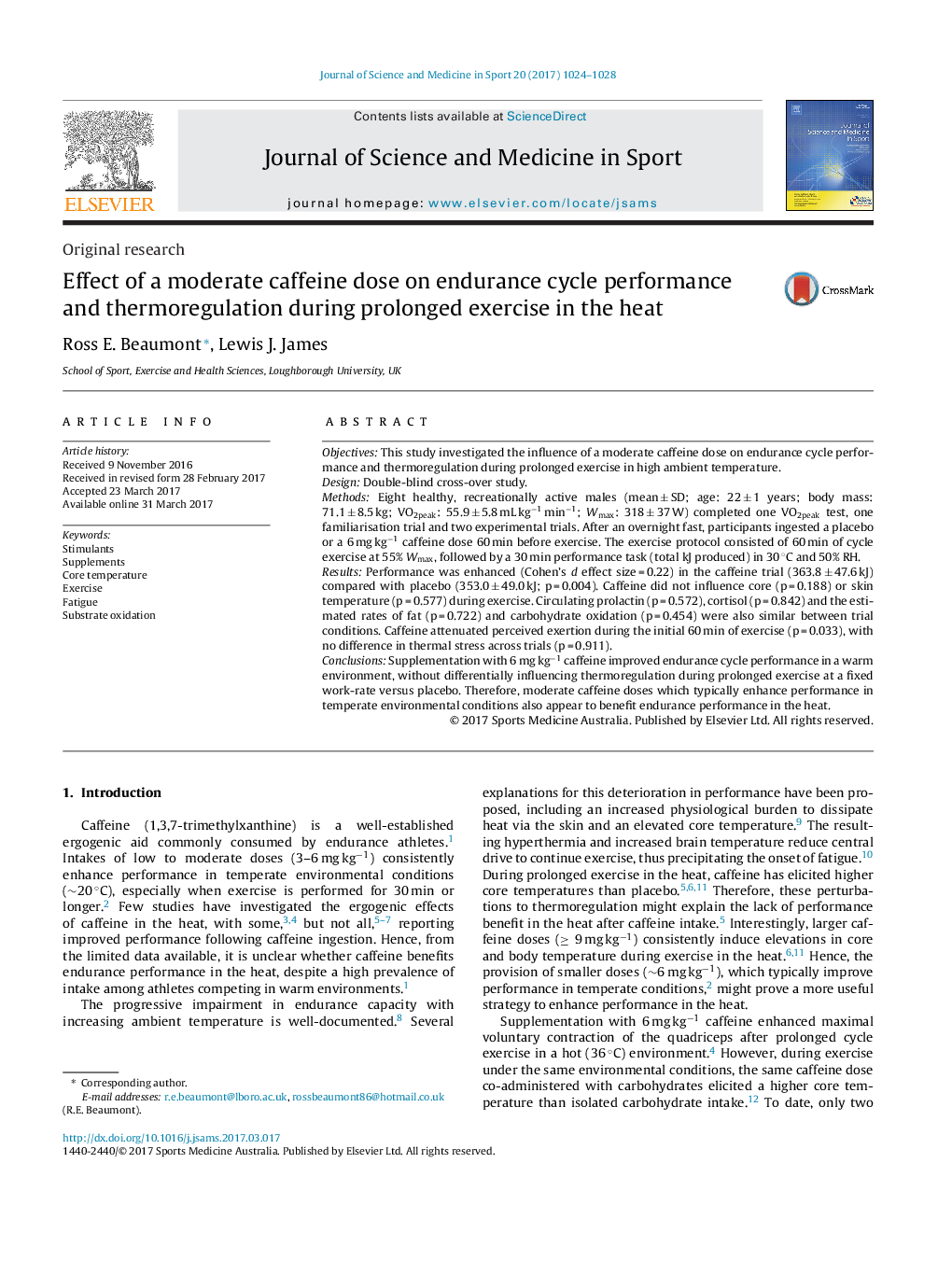| Article ID | Journal | Published Year | Pages | File Type |
|---|---|---|---|---|
| 5574061 | Journal of Science and Medicine in Sport | 2017 | 5 Pages |
ObjectivesThis study investigated the influence of a moderate caffeine dose on endurance cycle performance and thermoregulation during prolonged exercise in high ambient temperature.DesignDouble-blind cross-over study.MethodsEight healthy, recreationally active males (mean ± SD; age: 22 ± 1 years; body mass: 71.1 ± 8.5 kg; VO2peak: 55.9 ± 5.8 mL kgâ1 minâ1; Wmax: 318 ± 37 W) completed one VO2peak test, one familiarisation trial and two experimental trials. After an overnight fast, participants ingested a placebo or a 6 mg kgâ1 caffeine dose 60 min before exercise. The exercise protocol consisted of 60 min of cycle exercise at 55% Wmax, followed by a 30 min performance task (total kJ produced) in 30 °C and 50% RH.ResultsPerformance was enhanced (Cohen's d effect size = 0.22) in the caffeine trial (363.8 ± 47.6 kJ) compared with placebo (353.0 ± 49.0 kJ; p = 0.004). Caffeine did not influence core (p = 0.188) or skin temperature (p = 0.577) during exercise. Circulating prolactin (p = 0.572), cortisol (p = 0.842) and the estimated rates of fat (p = 0.722) and carbohydrate oxidation (p = 0.454) were also similar between trial conditions. Caffeine attenuated perceived exertion during the initial 60 min of exercise (p = 0.033), with no difference in thermal stress across trials (p = 0.911).ConclusionsSupplementation with 6 mg kgâ1 caffeine improved endurance cycle performance in a warm environment, without differentially influencing thermoregulation during prolonged exercise at a fixed work-rate versus placebo. Therefore, moderate caffeine doses which typically enhance performance in temperate environmental conditions also appear to benefit endurance performance in the heat.
